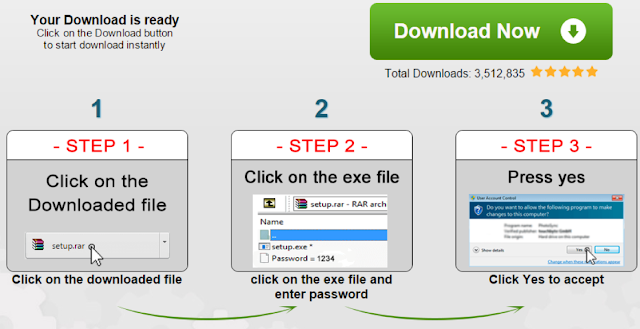📚 New research: Zeroing in on deceptive software installations
💡 Newskategorie: IT Security Nachrichten
🔗 Quelle: feedproxy.google.com
Posted by Kurt Thomas, Research Scientist and Juan A. Elices Crespo, Software Engineer
As part of Google’s ongoing effort to protect users from unwanted software, we have been zeroing in on the deceptive installation tactics and actors that play a role in unwanted software delivery. This software includes unwanted ad injectors that insert unintended ads into webpages and browser settings hijackers that change search settings without user consent.
Every week, Google Safe Browsing generates over 60 million warnings to help users avoid installing unwanted software--that’s more than 3x the number of warnings we show for malware. Many of these warnings appear when users unwittingly download software bundles laden with several additional applications, a business model known as pay-per-install that earns up to $1.50 for each successful install. Recently, we finished the first in-depth investigation with New York University into multiple pay-per-install networks and the unwanted software families purchasing installs. The full report, which you can read here, will be presented next week at the USENIX Security Symposium.
Over a year-long period, we found four of the largest pay-per-install networks routinely distributed unwanted ad injectors, browser settings hijackers, and scareware flagged by over 30 anti-virus engines. These bundles were deceptively promoted through fake software updates, phony content lockers, and spoofed brands--techniques openly discussed on underground forums as ways to trick users into unintentionally downloading software and accepting the installation terms. While not all software bundles lead to unwanted software, critically, it takes only one deceptive party in a chain of web advertisements, pay-per-install networks, and application developers for abuse to manifest.
Behind the scenes of unwanted software distribution
- Advertisers: In pay-per-install lingo, advertisers are software developers, including unwanted software developers, paying for installs via bundling. In our example above, these advertisers include Plus-HD and Vuupc among others. The cost per install ranges anywhere from $0.10 in South America to $1.50 in the United States. Unwanted software developers will recoup this loss via ad injection, selling search traffic, or levying subscription fees. During our investigation, we identified 1,211 advertisers paying for installs.
- Affiliate networks: Affiliate networks serve as middlemen between advertisers looking to buy installs and popular software packages willing to bundle additional applications in return for a fee. These affiliate networks provide the core technology for tracking successful installs and billing. Additionally, they provide tools that attempt to thwart Google Safe Browsing or anti-virus detection. We spotted at least 50 affiliate networks fueling this business.
- Publishers: Finally, popular software applications re-package their binaries to include several advertiser offers. Publishers are then responsible for getting users to download and install their software through whatever means possible: download portals, organic page traffic, or often times deceptive ads. Our study uncovered 2,518 publishers distributing through 191,372 webpages.


 800+ IT
News
als RSS Feed abonnieren
800+ IT
News
als RSS Feed abonnieren

